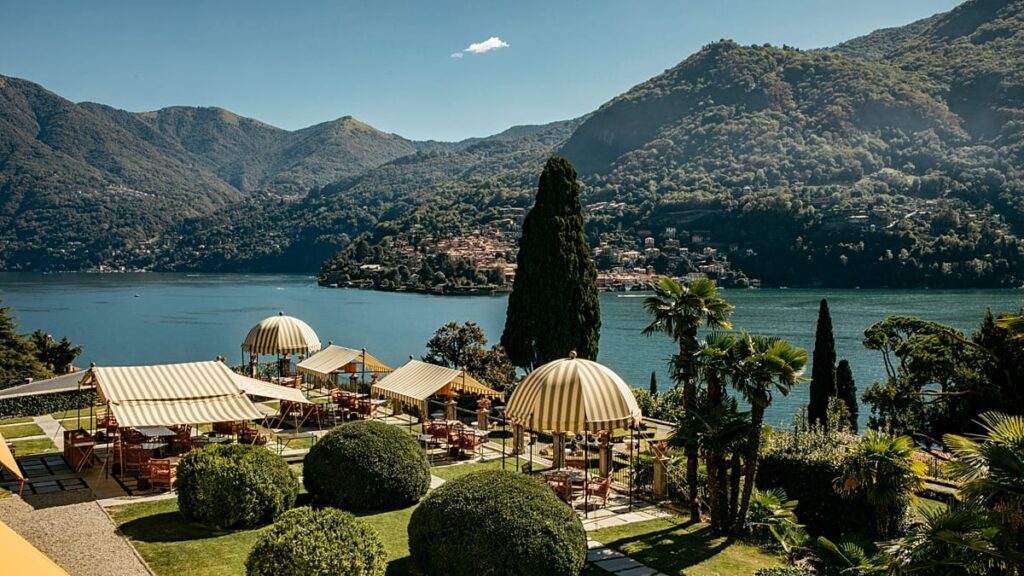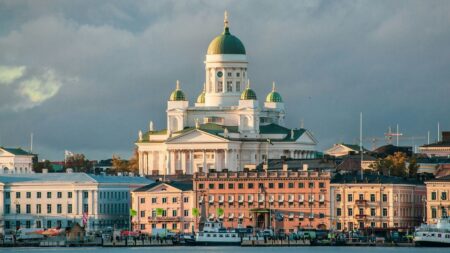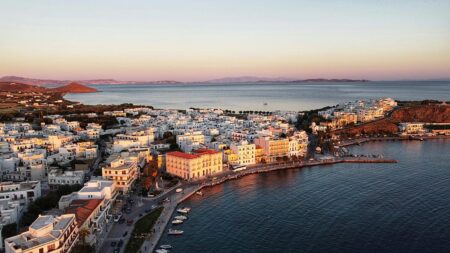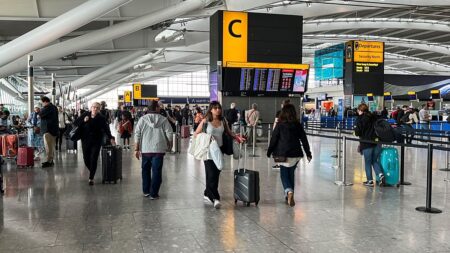The annual list of the World’s 50 Best Hotels was released at the end of last month.
The ranking is compiled by the 50 Best brand, which became an authority on global gastronomy after launching its World’s 50 Best Restaurants in 2002.
The group expanded to hospitality in 2023, with its first hotel awards.
This year, 17 properties in Europe made it into the global ranking. But how do the judges decide which hotels make the cut and what criteria mean an elusive spot in the top 10?
The world’s 50 best hotels for 2025
Rosewood Hong Kong, towering over Victoria Harbour on the Kowloon waterfront, took the top spot on The World’s 50 Best Hotels 2025 list, also clinching The Best Hotel in Asia title.
Opening in 2019, the 65-storey property was designed by celebrated Taiwanese designer Tony Chi. The contemporary 413-room hotel is home to eleven restaurants and bars, an impressive harbour-view infinity pool and the renowned multi-level Asaya wellness facility with nine treatment rooms.
Europe is home to 17 of the top hotels on the list. The highest-ranking European entry went to Lake Como’s Passalacqua in fourth place, which additionally won the Best Boutique Hotel Award.
Passalacqua lies on the shores of Italy’s most glamorous lake, set in an 18th-century villa which has played host to an aristocratic roll call of occupants, from Count Andrea Lucini-Passalacqua and composer Vincenzo Bellini to the current owners, the De Santis family.
The 24 earthy-toned rooms enlivened by pops of ornate Baroque elegance, graceful frescoed halls and groomed terraced gardens feel like an exclusive private home.
Four Seasons Firenze made it into the ninth spot, a 116-room property housed in a restored 15th-century Medici palace replete with mythological bas-reliefs and a frescoed chapel. The hotel features Florence’s largest public garden and has a Michelin-starred restaurant, Il Palagio.
Claridge’s in London came in 16th, Four Seasons Astir Palace in Greece came 17th, and Le Bristol in Paris was 19th.
There are also 11 special awards, including for the best eco hotel, won by Desa Potato Head in Bali. Driven by the motto ‘Good Times Do Good’, the hotel is committed to sustainability and was the first Asian hospitality brand to go carbon-neutral, with a focus on sourcing ingredients responsibly and using recycled materials.
50 Best worked closely with the Sustainable Restaurant Association on the Eco Hotel Award, inviting all hotels on the list to submit an application outlining their sustainability initiatives and credentials for rigorous review.
How do judges choose the world’s best hotels?
Hotel rankings, particularly when sustainability is a factor, have often drawn scepticism, given that they sometimes comprise properties that have paid to be included or have submitted themselves for the list.
The 50 Best brand, instead, has gained a reputation for credibility and impartiality because it is transparent about how its rankings are generated.
“There is no specific criteria for ‘best’, meaning our global panel voters simply vote for their very best experiences during the voting period,” explains Emma Sleight, head of content at 50 Best. “There is no ‘pay to play’, which means hotels, restaurants or bars cannot apply to be included in any of our lists.”
The World’s 50 Best Hotels list is compiled by parent company William Reed, a digital insights, events and awards group serving the food and drink sector.
The ranking is based on the votes of The World’s 50 Best Hotels Academy, which comprises more than 800 international, well-travelled, gender-balanced experts within the hotel and travel industry.
The Academy is split into 13 regions across the world, with each headed up by an Academy Chair. A minimum of 25 per cent of the panel is renewed each year.
Voters range from hoteliers to travel journalists, seasoned luxury travellers, hospitality professionals and other experienced globetrotters.
Each member of the Academy has seven votes. At the point of voting, they are simply required to list the seven best hotels they have stayed in over the past 24 months in order of preference.
“It is down to the voter to judge what ‘best’ means to them,” Sleight adds.
There is a host of strict voting rules, starting with preventing voters from revealing their role (including on social media) – the reason why we couldn’t get comment from any of the members for this article.
The restrictions also include not selecting more than three properties from within the same hotel group and not proposing any venue in which voters have a financial interest.
Any hotel across the world can be nominated, as there is no requirement for size, number of guests, facilities or otherwise.
This method means that hotels cannot apply to be on the list, and any hotel in the world is eligible to be featured. It will only be disqualified if it has permanently closed at the time that the list is announced or 50 Best receives notice that it will be closing in the period shortly after results are published.
Read the full article here














